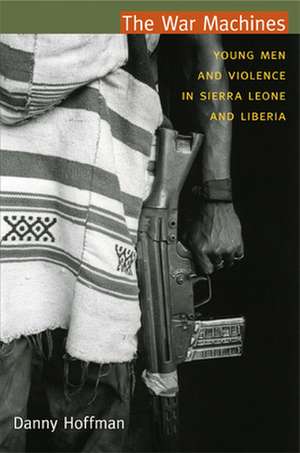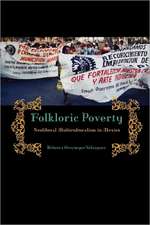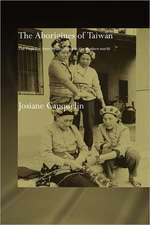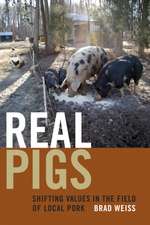The War Machines – Young Men and Violence in Sierra Leone and Liberia: The Cultures and Practice of Violence
Autor Danny Hoffmanen Limba Engleză Paperback – 15 sep 2011
Preț: 270.96 lei
Nou
Puncte Express: 406
Preț estimativ în valută:
51.85€ • 54.13$ • 42.91£
51.85€ • 54.13$ • 42.91£
Carte tipărită la comandă
Livrare economică 05-19 aprilie
Preluare comenzi: 021 569.72.76
Specificații
ISBN-13: 9780822350774
ISBN-10: 0822350777
Pagini: 328
Ilustrații: 51 photographs
Dimensiuni: 180 x 234 x 23 mm
Greutate: 0.61 kg
Editura: MD – Duke University Press
Seria The Cultures and Practice of Violence
ISBN-10: 0822350777
Pagini: 328
Ilustrații: 51 photographs
Dimensiuni: 180 x 234 x 23 mm
Greutate: 0.61 kg
Editura: MD – Duke University Press
Seria The Cultures and Practice of Violence
Cuprins
Illustrations ix
Preface xi
Acknowledgments xxiii
Introduction: War Machines 1
I. Histories
1. The Mano River War: A Chronology 27
2. Hunters, Lumpens, and War Boys: A Social History of the Kamajors 55
3. States of Conflict: A Social History of the Kamajors Continued 88
II. Building The Barracks
4. Big Men, Small Boys 127
5. The Barracks 162
6. The Hotel Kamajor 194
7. The Magic of War 224
Conclusion: A Laboratory of the Future 252
Notes 261
Bibliography 273
Index 289
Preface xi
Acknowledgments xxiii
Introduction: War Machines 1
I. Histories
1. The Mano River War: A Chronology 27
2. Hunters, Lumpens, and War Boys: A Social History of the Kamajors 55
3. States of Conflict: A Social History of the Kamajors Continued 88
II. Building The Barracks
4. Big Men, Small Boys 127
5. The Barracks 162
6. The Hotel Kamajor 194
7. The Magic of War 224
Conclusion: A Laboratory of the Future 252
Notes 261
Bibliography 273
Index 289
Recenzii
Having spent time among the militias of Sierra Leone and Liberia during those countries civil wars, Hoffman contends that, across West Africa (and in countries even further afield), a range of social structures have evolved to make young people available for violent labour both on the battlefield and in the regions extractive industries. - Survival: Global Politics and Strategy, August 2012
A strikingly original account of a West African war-scape, here translated into memorable prose and sophisticated theory. As much a zone of labor and extraction as of war-making, this landscape of fluid and fungible identities forces us to think Sierra Leone and Liberia, Danny Hoffman provokes, as a laboratory of the future. This brilliant book will be widely read and debated. Charles Piot, author of Nostalgia for the Future: West Africa after the Cold War
In todays African worlds people have to constantly come up with new stories in order to access livelihood and opportunity; stories about how they are to be seen or slip under the radar, how to be part of a larger world. In this account of young men and women fighters in West Africa, Danny Hoffman demonstrates that armed conflict is an opportunity for the young to work. It is work that attempts to be contemporaneous with what is perceived as the real global world, to go beyond the constrictions of state, culture, and society. Even if these attempts are eventually folded into becoming instruments of narrow agendas or the prevailing logics of capitalist administration and value, they remain striving to live in new ways. Hoffman, with great courage and hard work, has engaged the complexity of such conflict, making it count for something--the entanglement of brutality and hope. AbdouMaliq Simone, author of For the City Yet to Come: Changing African Life in Four Cities
"Having spent time among the militias of Sierra Leone and Liberia during those countries' civil wars, Hoffman contends that, across West Africa (and in countries even further afield), a range of social structures have evolved to make young people available for 'violent labour' both on the battlefield and in the region's extractive industries." - Survival: Global Politics and Strategy, August 2012 "A strikingly original account of a West African war-scape, here translated into memorable prose and sophisticated theory. As much a zone of labor and extraction as of war-making, this landscape of fluid and fungible identities forces us to think Sierra Leone and Liberia, Danny Hoffman provokes, as a laboratory of the future. This brilliant book will be widely read and debated." Charles Piot, author of Nostalgia for the Future: West Africa after the Cold War "In today's African worlds people have to constantly come up with new stories in order to access livelihood and opportunity; stories about how they are to be seen or slip under the radar, how to be part of a larger world. In this account of young men and women fighters in West Africa, Danny Hoffman demonstrates that armed conflict is an opportunity for the young to work. It is work that attempts to be contemporaneous with what is perceived as the 'real global world', to go beyond the constrictions of state, culture, and society. Even if these attempts are eventually folded into becoming instruments of narrow agendas or the prevailing logics of capitalist administration and value, they remain striving to live in new ways. Hoffman, with great courage and hard work, has engaged the complexity of such conflict, making it count for something--the entanglement of brutality and hope." AbdouMaliq Simone, author of For the City Yet to Come: Changing African Life in Four Cities
A strikingly original account of a West African war-scape, here translated into memorable prose and sophisticated theory. As much a zone of labor and extraction as of war-making, this landscape of fluid and fungible identities forces us to think Sierra Leone and Liberia, Danny Hoffman provokes, as a laboratory of the future. This brilliant book will be widely read and debated. Charles Piot, author of Nostalgia for the Future: West Africa after the Cold War
In todays African worlds people have to constantly come up with new stories in order to access livelihood and opportunity; stories about how they are to be seen or slip under the radar, how to be part of a larger world. In this account of young men and women fighters in West Africa, Danny Hoffman demonstrates that armed conflict is an opportunity for the young to work. It is work that attempts to be contemporaneous with what is perceived as the real global world, to go beyond the constrictions of state, culture, and society. Even if these attempts are eventually folded into becoming instruments of narrow agendas or the prevailing logics of capitalist administration and value, they remain striving to live in new ways. Hoffman, with great courage and hard work, has engaged the complexity of such conflict, making it count for something--the entanglement of brutality and hope. AbdouMaliq Simone, author of For the City Yet to Come: Changing African Life in Four Cities
"Having spent time among the militias of Sierra Leone and Liberia during those countries' civil wars, Hoffman contends that, across West Africa (and in countries even further afield), a range of social structures have evolved to make young people available for 'violent labour' both on the battlefield and in the region's extractive industries." - Survival: Global Politics and Strategy, August 2012 "A strikingly original account of a West African war-scape, here translated into memorable prose and sophisticated theory. As much a zone of labor and extraction as of war-making, this landscape of fluid and fungible identities forces us to think Sierra Leone and Liberia, Danny Hoffman provokes, as a laboratory of the future. This brilliant book will be widely read and debated." Charles Piot, author of Nostalgia for the Future: West Africa after the Cold War "In today's African worlds people have to constantly come up with new stories in order to access livelihood and opportunity; stories about how they are to be seen or slip under the radar, how to be part of a larger world. In this account of young men and women fighters in West Africa, Danny Hoffman demonstrates that armed conflict is an opportunity for the young to work. It is work that attempts to be contemporaneous with what is perceived as the 'real global world', to go beyond the constrictions of state, culture, and society. Even if these attempts are eventually folded into becoming instruments of narrow agendas or the prevailing logics of capitalist administration and value, they remain striving to live in new ways. Hoffman, with great courage and hard work, has engaged the complexity of such conflict, making it count for something--the entanglement of brutality and hope." AbdouMaliq Simone, author of For the City Yet to Come: Changing African Life in Four Cities
Notă biografică
Descriere
Considers how young men in West Africa are made available for violent labour on battlefields and in diamond mines, rubber plantations, and other unregulated industries























